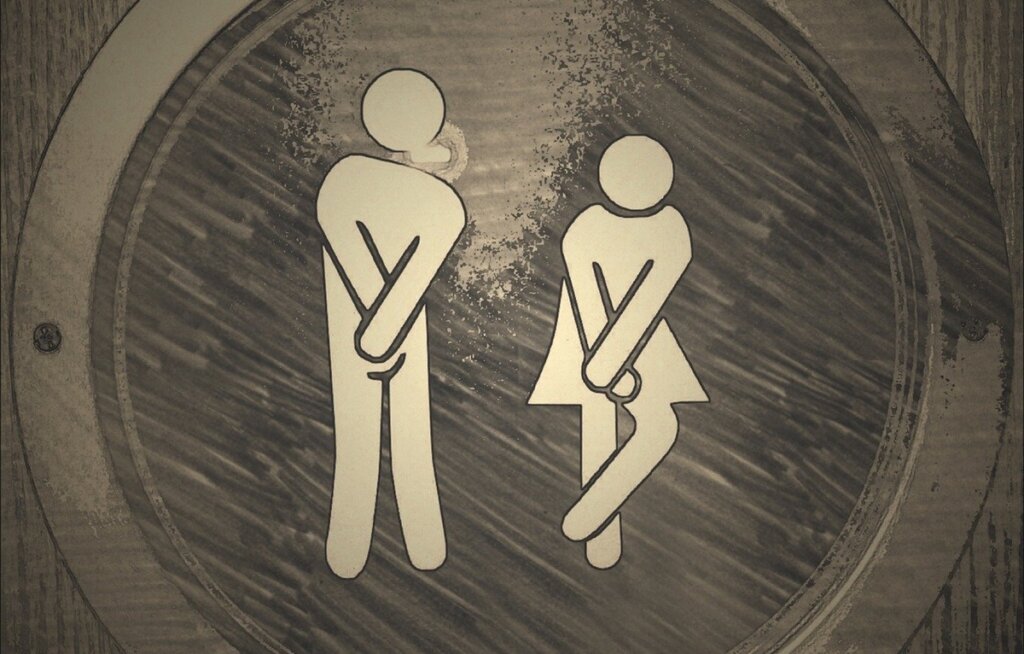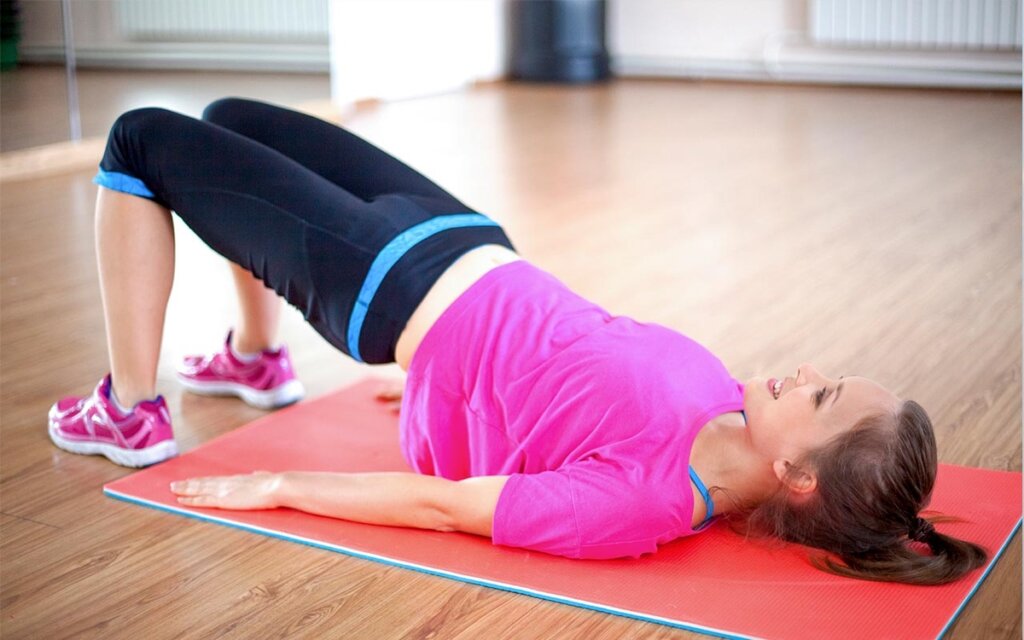Anxiety Urination: An Inconvenient Symptom


Written and verified by the psychologist Valeria Sabater
Anxiety urination is pretty common. Perhaps you’ve experienced it yourself at some point? Indeed, something as normal as facing a job interview, having to speak in public, or even a special date can make you suddenly feel that uncomfortable urge to go to the bathroom. However, why does this happen? How can your emotions have such an impact?
The famous neuropsychiatric, Kurt Goldstein pointed out that fear sharpens the senses, but high anxiety paralyzes them. Indeed, when this psychological mechanism reaches really high rates, its effects are as striking as they’re limiting. In fact, all of a sudden, you’re completely subjected to its symptoms.
These are dizziness, stomach pain, rapid heartbeat, tremors, excessive sweating, and frequent urination. However, you may find that you experience this last effect continuously. That’s because lingering nerves can make you forever dependent on the bathroom. Let’s take a closer look.

Anxiety urination: definition, symptoms, and causes
Frequent urges to urinate can be due to multiple causes. For example, urine infections, kidney stones, or diabetes, among others. If you’ve been experiencing this problem for a while, the first thing you need to do is get a medical diagnosis. Then, you can rule out any other problem or disorder that could be causing it.
If you find that your urge to go to the bathroom so frequently isn’t due to any organic problem, it’s likely that you’re suffering from anxiety urination. This is a condition in which bladder discomfort and an increased need to urinate are experienced. As a rule, this occurrence is usually something specific and limited to a stressful or distressing situation. For instance, an exam.
However, the situation becomes a little more complicated when it’s prolonged over time. Experts on this subject suggest that the natural need to urinate is controlled by many factors and not only by those mediated by the brain. In fact, they claim that emotions also play an indispensable role.
The symptoms
Anxiety urination can appear without any particular stimulus or stressful situation. In fact, there are times when you accumulate a higher level of anxiety over time. This might be for personal or work reasons. It’s then that you begin to notice that discomfort.
Here are the symptoms:
- Increased pressure on the bladder muscles.
- Frequent urination. On average, eight or more times in a 24-hour period.
- An almost constant urge to go to the bathroom. In other words, you might urinate once and then feel the need to do so again within 15 minutes.
- Symptoms may appear both during the day and at night.
- Stinging, cramps, and even abdominal pain.
- In some cases, the condition can be present for weeks or months.
- An overactive bladder can be triggered by anxiety.
The origins of anxiety urination
In normal situations, where you have no other health problems, your bladder holds the urge to urinate for quite some time. Then, when it’s extremely full, it sends a signal through your spine to your brain to tell it that it’s at its limit and it’s time for it to be emptied. However, in conditions of anxiety and great emotional intensity, things can change.
- Stress and anxiety release high levels of cortisol and adrenaline. These hormones over-activate the entire body, including the urinary system.
- Muscles tend to tense. This causes greater pressure to be exerted on the bladder and you always feel as if it’s full.
- The University of Toho (Japan) conducted research that suggested that emotions also exert control over the urinary system. Indeed, it’s known that people with anxiety disorders or depression tend to suffer more frequently from the problem of an overactive bladder.
- Anxiety prepares you for fight or flight. In turn, this reaction demands that you free your body of waste and fluids, so you can act more quickly. This makes you experience a greater need to evacuate both your bladder and your anal sphincter.

Strategies to deal with the problem
Anxiety urination isn’t resolved by drinking less or resorting exclusively to drugs. In fact, you need changes, psychological strategies, and adequate skills to manage your thoughts, emotions, and behaviors. Let’s take a look at some strategies to help.
Psychological strategies
Cognitive restructuring can be extremely useful. It basically consists of being more aware of everything that happens in your mind. In this way, you’re able to detect any dysfunctional thoughts and attitudes. It helps you:
- Transform your irrational thoughts into more integrated, rational, and logical ideas.
- Avoid falling into the trap of negativism, generalizations, and magnifications.
- Be able to detect your negative emotions. Then you can understand them, understand their message, and reduce their impact.
- Learn problem-solving techniques. These can prevent what worries you from getting bigger every day.
- Be flexible. Rest your mind and allow yourself moments of leisure and rest.
Relaxation and breathing strategies
Strategies such as deep or diagrammatic breathing, mindfulness, or Jacobson’s progressive relaxation technique are suitable strategies to reduce the impact of stress and anxiety.
Pelvic Floor Muscle Exercises (Kegel)
Last but not least, it’s worth starting pelvic floor muscle exercises. They’re a way of strengthening the entire pelvic area. This is optimal for the proper functioning of the urinary organs. In fact, these exercises relax you and improve your overall health and internal balance.
To conclude, as we pointed out at the beginning, urination due to anxiety is a common problem. However, it’s always appropriate to consult with a doctor to find out which guidelines would be the most appropriate for you to follow.
All cited sources were thoroughly reviewed by our team to ensure their quality, reliability, currency, and validity. The bibliography of this article was considered reliable and of academic or scientific accuracy.
- Belon, J. P. (2019). Anxiety and anxiety disorders. Actualites Pharmaceutiques, 58(590), 18–22. https://doi.org/10.1016/j.actpha.2019.09.005
- Fowler, C. J., Griffiths, D., & De Groat, W. C. (2008, June 9). The neural control of micturition. Nature Reviews Neuroscience. https://doi.org/10.1038/nrn2401
- Sakakibara, R., Ito, T., Yamamoto, T., Uchiyama, T., Yamanishi, T., Kishi, M., … Kuroki, N. (2013, September). Depression, anxiety and the bladder. LUTS: Lower Urinary Tract Symptoms. https://doi.org/10.1111/luts.12018
- Sierra, J. C., Ortega, V., & Zubeidat, I. (2003). Ansiedad, angustia y estrés: tres conceptos a diferenciar. Revista mal-estar e subjetividade, 3(1), 10-59.
This text is provided for informational purposes only and does not replace consultation with a professional. If in doubt, consult your specialist.








